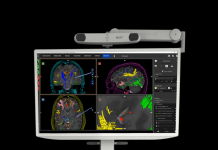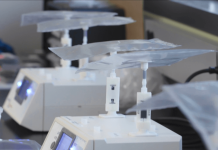Zap Surgical’s ZAP Axon radiosurgery planning system has received 510(k) clearance from the US Food and Drug Administration (FDA), as well as gaining the European CE mark.
Achieved using radiosurgery systems such as Zap’s ZAP-X, Axon is specifically designed for planning cranial stereotactic radiosurgery (SRS) procedures. SRS involves directing radiosurgical beams from thousands of potential angles to precisely target and reduce the size of cancerous tumours while preserving healthy brain tissue.
Related: Nitinotes receives CE Mark for EndoZip, a fully automated suturing system for ESG
According to Zap, Axon mitigates the need for clinicians to use multi-purpose planning software for SRS, despite it being originally developed for full-body applications. The company said that Axon delivers a more focused planning approach for clinicians with the aim of making radiosurgery case planning more efficient.
Zap Surgical’s founder and CEO John Adler said: “By eliminating unnecessary complexity and clutter, Axon’s streamlined interface allows clinicians to quickly master advanced radiosurgery planning – without the complicated navigation common in legacy systems.”
Axon has been developed alongside Zap’s ZAP-X Gyroscopic Radiosurgery platform, which received clearance from the FDA in 2017. It was used to complete its first SRS procedure at Barrow Brain and Spine, a partner of Barrow Neurological Institute in Phoenix, Arizona, in 2019, and gained the CE mark in Europe in 2021.
Since then, Zap has completed a $78m Series E funding round and conducted the first brain tumour treatment at South Korea’s Dongguk University Ilsan Hospital with the system, with each development aligning with the company’s aims to expand ZAP-X adoption within global healthcare settings.
Radiosurgery is a gradually evolving market that has struggled to gain traction due to its niche use cases in treating the likes of brain tumours and spinal lesions and high system costs that have slowed adoption rates. Furthermore, the treatment is also not a first-line treatment approach for most cancers, further limiting its patient base versus broader modalities such as chemotherapy.
Despite these factors, according to GlobalData analysis, the global radiosurgery systems market is growing at a CAGR of 3.8% and is forecast to reach a valuation of around $930m by 2034, up from $643.6m in 2024.




